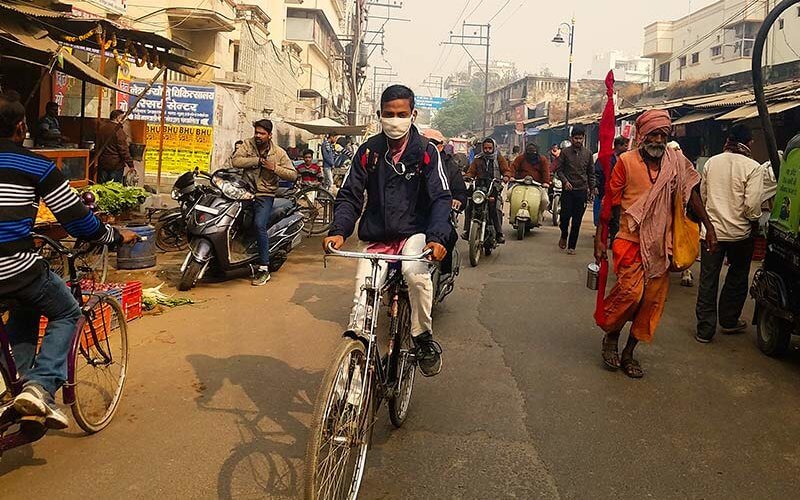
India’s COVID-19 pandemic lockdown resulted in a significant reduction of air pollutants such as black carbon aerosols, which can pose an adverse risk to human health, according to a new Cal State Fullerton study.
Environmental engineer Sudarshan Kurwadkar is a co-author of the research, published May 10 in the journal Air Quality, Atmosphere, and Health. The study documents how the strict coronavirus pandemic lockdown resulted in a significant reduction of atmospheric concentrations of black carbon and other air pollutants in India’s major urban cities.
This paper reported the overall decrease in black carbon and polycyclic aromatic hydrocarbons before and after the lockdown. These findings are critical to driving home the message that even short-term interventions can dramatically impact the environment and reduce inhalation of air pollutants, said Kurwadkar, professor of civil and environmental engineering.
“A brief lockdown allowed Mother Nature to breathe a sigh of relief. Not surprisingly, many urban areas worldwide reported a dramatic reduction in air pollutants and overall improvement in visibility and air quality index.
“The study demonstrated that every small change in our lifestyle affects the environment significantly. It is up to us to act together to preserve and protect our planet by being proactive and making changes to sustain and promote a healthy environment.”
Kurwadkar received a National Academies of Sciences, Engineering, and Medicine fellowship through its National Research Council Research Associateship Programs. He is currently on sabbatical working at the U.S. Environmental Protection Agency in Oklahoma as a senior research associate studying the remediation of chromium (VI) in groundwater.
Kurwadkar is directing a $1.5 million National Science Foundation grant project to increase the retention and graduation rates of primarily Hispanic and other underrepresented students majoring in engineering and computer science.
A native of India, Kurwadkar earned a doctorate from Missouri University of Science and Technology and holds master’s degrees from Indian Institute of Technology, New Delhi, and Pune University; and a bachelor’s degree from Amravati University, all in India.
About Cal State Fullerton: The largest university in the CSU and the only campus in Orange County, Cal State Fullerton offers 110 degree programs, and Division 1 athletics. Recognized as a national model for supporting student success, CSUF excels with innovative, high-impact educational practices, including faculty-student collaborative research, study abroad and competitive internships. Our vibrant and diverse campus is a primary driver of workforce and economic development in the region. CSUF is a top public university known for its success in supporting first-generation and underrepresented students, and preparing all students to become leaders in the global marketplace. Our It Takes a Titan campaign, a five-year $200 million comprehensive fundraising initiative, prioritizes investments in academic innovation, student empowerment, campus transformation and community enrichment. Visit fullerton.edu.
# # #
Photo Caption: California State University, Fullerton environmental engineer Sudarshan Kurwadkar’s study determined significant reduction of air pollutants such as black carbon aerosols were among the environmental benefits of India’s pandemic lockdown.